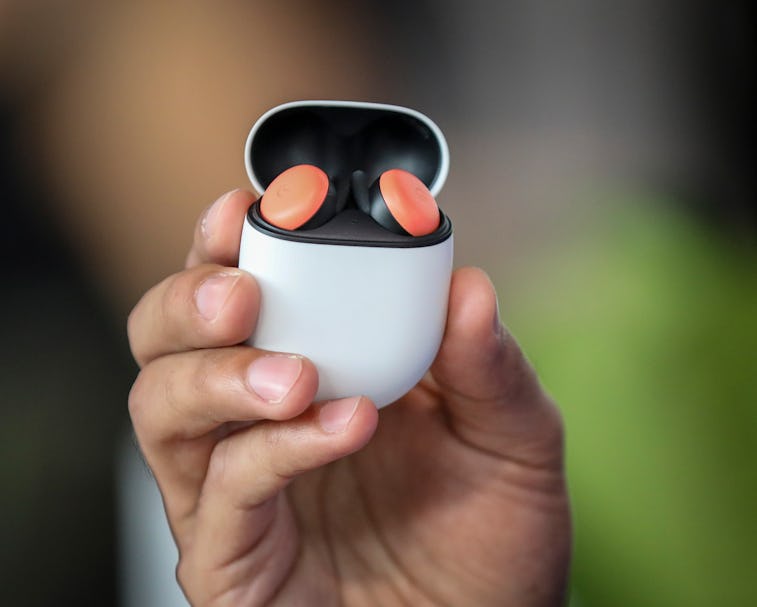Tech
Google's new Pixel Buds (briefly) went on sale
A short-lived pre-order page suggests they're finally set for release.

Google’s answer to the AirPods may be hitting store shelves soon. 9to5Google today spotted a pre-order page for the Pixel Buds over at B&H Photo, available in “Clearly White” for $179. The listing has since been pulled and searching for Pixel Buds will instead return the original, wired model.
The new Pixel Buds were slated for a spring 2020 release, so this premature leak suggests they're coming right on time.
Much improved earbuds, if you're okay with the design — Google unveiled the truly-wireless Pixel Buds during its Pixel 4 event back in October. Besides dropping the neck cable that connects the two buds, the new Pixel Buds feature adaptive sound technology that’s supposed to adjust the volume according to your surroundings. There's also a touch sensitive panel on the buds that you can swipe to adjust the volume. Google says the new Pixel Buds get five hours of listening time on a charge, or 24 hours when paired with the wireless charging case. You'll also get access to Google Assistant.
I'm not a huge fan of the circular shape of these things because I think they kind of look like an implanted hearing device. But then again the AirPods were derided for their design early on and that clearly didn't stop anyone from shelling out for them, so it's probably not a huge deal if the Pixel Buds work well. Microsoft's upcoming Surface Earbuds share a similar round design.
The earbuds also have a seal to reduce outside noise but Google says they created a "spacial vent" that reduces the plugged-ear feeling and still allows you to remain aware of your surroundings.
The Pixel Buds face stiff competition — Especially from the AirPods which are, of course, incredibly popular. Apple CEO Tim Cook has said that they "keep hitting new highs," with one analyst estimating the AirPods alone are a $6 billion business for the company.
Apple benefits from a tight integration between its AirPods and the iPhone thanks to its proprietary W1 chip, which all but eliminates the connectivity issues that Bluetooth is known for. There is an improved version of that standard on the way, however.